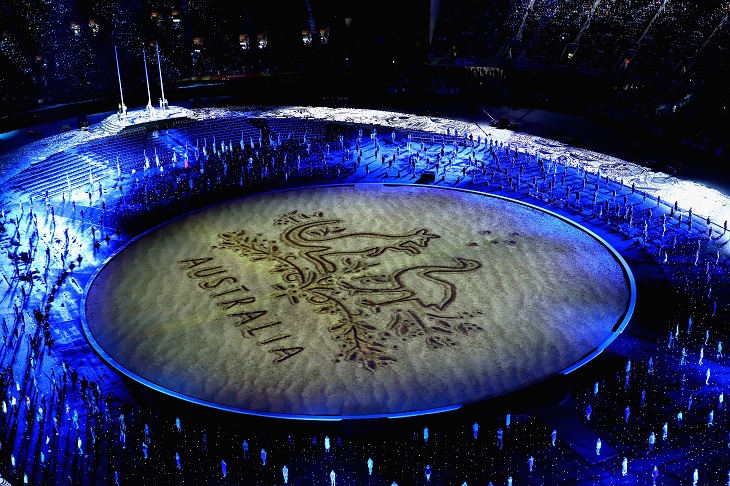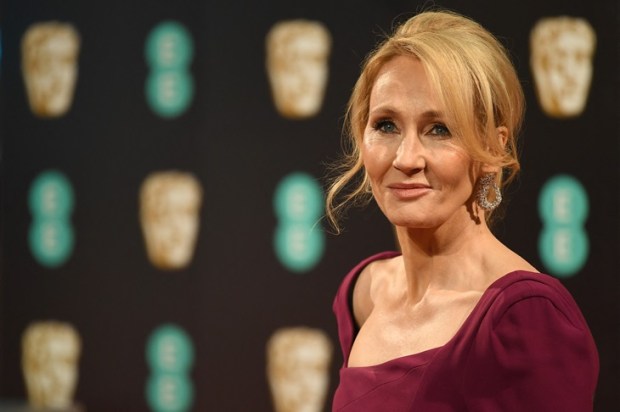Britain has a long and storied tradition of palming unwanted things off to Australia. Aside the obvious example, the Territory of Papua was transferred to Australian sovereignty in 1902, to be followed by tiny Norfolk Island in 1913, phosphate-rich Nauru in 1920, and the vast Antarctic Territory in 1933. In recent years, Julia Gillard, Tony Abbott, and Olivia Newton-John have all made their way from the Sceptred Isle to the Land Down Under. Since 2017, we’ve even let you keep the Ashes on loan. How nice of us.
These transfers had more to do with disinterest and penny-pinching than fraternal charity. Yet, as a starry-eyed nostalgist, I can’t help but feel the faintest pang of sentimentality. So strong are the bonds of culture, law, and language that Australia has been trusted by generations of Britons as a leading light of law, free commerce, and stability in the Pacific.
Looking at the recent past, you’d be forgiven for thinking that the UK had done the same with the Commonwealth, growing bored of the old club, and foisting trusted Australia into the leading role.
Agreed upon in 1926 and founded in 1931 as the British Commonwealth of Nations, the modern Commonwealth of Nations briefly formed the backbone of Britain’s post-war foreign policy, before being unceremoniously discarded in pursuit of closer integration with Europe in 1973. It was a thorn in the side of the Thatcher government over Apartheid and a post-imperial embarrassment for Blair, a collection of disparate and desperately poor islands held together by the Queen’s sheer force of personality.
Now, searching once more for its world-historic mission, Britain finds itself interested in the Commonwealth. However, the bride that London once jilted is now changed beyond recognition. The modern Commonwealth is full of confident global players – the Indian behemoth, burgeoning Nigeria, and leading the pack, trusted Australia, now arguably the most influential of them all.
Since the millennium, Australia has hosted two Commonwealth Heads of Government Meetings (CHOGM) to the UK’s one. It was at Perth 2011 that new rules for royal succession were agreed. Australia will also be instrumental in the smooth running of CHOGM 2024, set to be hosted in Samoa. The country’s capital, Apia, a tiny city of just 36,000, has neither the infrastructure nor the transport connections to support the huge crowds that characterise most CHOGMs. Samoa is some 38 hours in the air away from London and an eye-watering 42 hours away from Ottawa – it has, perhaps more importantly, never hosted a global conference of this scale before.
Australian technical support will be absolutely critical for the Samoans, and Australian airports will transport many of those brave enough to make the journey.
One of the Commonwealth’s most visible manifestations is the Commonwealth Games, of which Australia is the undisputed champion, topping the all-time medal table comfortably, and winning the last two Games, Gold Coast 2018, and Birmingham 2022, with relative ease. The next games, in 2026, will be held across a number of cities in Victoria.
In London, the Commonwealth Foundation – the Secretariat’s cultured cousin – is headed by the fantastic Dr. Anne Gallagher, an Australian-born lawyer educated at Macquarie, and ‘the leading global expert on the international law on human trafficking’. Whichever Commonwealth institution you turn to, from the mighty Secretariat at Marlborough House to the Commonwealth Beekeepers’ Association, you will find an Australian in the engine room, keeping it running like a well-oiled machine.
But while much ink has been spilled about the institutions of the Commonwealth, its beating heart is still the member states. The Commonwealth has an unparalleled ability to bring disparate countries around the table to address the big, global issues of the day. The bilateral and multilateral relationships of the Commonwealth’s fifty-six member states form a complex web of friendships, partnerships, and alliances of convenience, often difficult to comprehend but never to be overlooked.
On this front, Australia’s contributions are unparalleled. It has, consciously or unconsciously, used the Commonwealth to shape its international outlook, influencing global affairs well beyond its means and utilising the Commonwealth network to its unqualified advantage.
Australia is the key agent in a network of Indo-Pacific democracies which increasingly serve as a counterweight to Beijing’s growing influence. Even leaving aside consistently close Trans-Tasman ties, Australia is the undisputed aid and trade champion of the Pacific, home to nine Commonwealth member states. Canberra was instrumental in establishing the recently penned Comprehensive and Progressive Agreement for Trans-Pacific Partnership (rolls off the tongue, doesn’t it?), of which a full 55 per cent is bound up in Commonwealth economies.
The relative ease with which Scott Morrison and Anthony Albanese have charmed India’s often intransigent Narendra Modi puts their British counterparts to shame, and is a refreshing change from Justin Trudeau’s cultural cringe. At the same time, the Australian Defence Forces are the most engaged contributors to the Five Power Defence Arrangements, a series of military agreements involving the UK, Malaysia, Singapore, New Zealand, and Australia.
Further afield, in Africa and the Caribbean, Australia’s influence may seem modest – but scratch below the surface and you might be surprised. Through its aforementioned sporting pedigree, Australia has forged cultural ties on playing fields and athletics tracks with a host of Commonwealth Afro-Caribbean states and has reaped the rewards. Australian mining companies operate across the African continent, from Ghana to Kenya, and the Royal Australian Navy has partnered since 2013 with its Kenyan counterpart in fighting Indian Ocean piracy and drug smuggling. That soft sporting power has paid back hard power dividends.
While these initiatives might not be packaged up under the Commonwealth brand, there can be no doubt that Commonwealth links lie at their foundation. Countries with comparable legal systems, a shared language, and intertwined histories make for attractive partners, something that Australia has understood and utilised across the world.
Post-Brexit Britain is slowly waking up to the need to reengage its Commonwealth partners in a fast-changing world. As it does so, it must remember that the network hasn’t been preserved in amber since 1973, desperately waiting for the call of the mother country. Focus has shifted, supply chains have adapted, priorities have changed – the Commonwealth has, to be frank, moved on.
Like the tired old patriarch attending a family barbecue at his son’s house, it’s easy for the UK to feel out of place. Dear old dad is no longer needed to man the grill, the beer is strange and different, and people keep making jokes about a recent and messy divorce from his flamboyant European wife.
Yet there is still great affinity, a sentimental connection, and an alignment of interests that ensure that Britain’s return to the fold is a welcome one. The ease with which London has pivoted back to its Commonwealth ties is a testament to how thoroughly sensible that pivot was in the first place.
AUKUS, a newly minted free trade agreement, and British membership of CPTPP are all hallmarks of a Britain once again interested in the wider world, and which once again understands that the Commonwealth is its greatest soft power asset. At the same time, the Commonwealth’s importance on the global stage has never been greater. Whisper it, but we may – entirely by accident – be entering a Commonwealth renaissance.
We should be grateful that this great global network has been kept alive in the face of British negligence. Australia has been central to that, maintaining Commonwealth institutions and ensuring that its spirit has remained the same, focused squarely on its founding values. This time, the reawakened Britain will take its place as a much-valued equal in a coalition united by shared history and shared goals. Long gone is the old Imperial hub directing to its spokes, and in its place emerges a truly global framework that could help to define the 21st century.
So, let’s raise a glass, to a renewed partnership and to an enduring friendship. The Commonwealth now belongs as much to Australia as to Britain, and long may that continue.
Sam Bidwell is a Parliamentary Researcher, graduate of the University of Cambridge, and Director of the Centre for Commonwealth Affairs. You can find more about the Centre’s Commonwealth policy work at their website (commonwealthaffairs.co.uk) or on Twitter (@commonwealthcca).
Got something to add? Join the discussion and comment below.
Get 10 issues for just $10
Subscribe to The Spectator Australia today for the next 10 magazine issues, plus full online access, for just $10.


























Comments
Don't miss out
Join the conversation with other Spectator Australia readers. Subscribe to leave a comment.
SUBSCRIBEAlready a subscriber? Log in